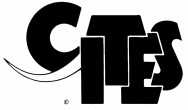TRAFFIC launches Elephant Trade Information System Online
Cambridge, Geneva, 15th October 2020—ETIS Online, a new online platform for the Elephant Trade Information System (ETIS) was launched today by TRAFFIC.
The new website, named ETIS Online, was produced following a request made at the 69th meeting of the CITES Standing Committee in 2017. The site aims to bolster the collection of data on seizures involving elephant specimens and access to such data by submitting Parties. The new functionalities will facilitate enriching data available for analysis to inform international policy relating to preventing and addressing illegal ivory trade.
The new platform allows authorised governmental representatives to access and more easily submit records on elephant specimen seizures in their respective countries. For example, Parties can view and download their data that are used in ETIS analyses, which details the number and weight of seizures made within the country as well as seizures in which their country was implicated by other Parties.
ETIS is a database holding almost 30,000 records of seizures or confiscations of elephant ivory and other elephant specimens, which have been reported since 1989 – for a total of over 750 tonnes of raw ivory equivalent to date.
Mandated by CITES Parties1,2, ETIS was established in 1998 and is managed by TRAFFIC on behalf of the CITES Secretariat, and in consultation with the MIKE-ETIS Technical Advisory Group. The monitoring system was designed to measure and record levels and trends of illegal trade in elephant specimens and any changes in these levels and trends. TRAFFIC has produced comprehensive analyses based on these records, which have been used to inform decisions by CITES Parties and Governing Bodies.
CITES welcomes the new ETIS Online platform, where Parties can capture and validate elephant specimen seizure data. Better data means better insights, which will serve to strengthen decision-making on matters concerning elephant conservation and the enforcement responses needed to prevent, detect and address illegal ivory trade,
Ivonne Higuero, Secretary-General of CITES.
“ETIS Online increases the efficiency of elephant seizure data collection and analysis, which we hope will strengthen the evidence base for future CITES action on ivory trade challenges,” said Steven Broad, Executive Director of TRAFFIC.
Together with the Monitoring the Illegal Killing of Elephants (MIKE) Programme, ETIS is one of the key monitoring and reporting systems concerning elephants recognised under CITES.
Since 1998, ETIS analysis results helped to focus attention on countries most affected by the illegal trade in ivory. It also currently serves as the foundation for identifying Parties to participate in the CITES National Ivory Action Plan (NIAP) process.
The NIAP is a practical tool that is being used by the Convention in a number of its Parties to strengthen their controls of the trade in ivory and ivory markets and help combat the illegal trade in ivory.
The development of ETIS Online was established under an initiative funded under the United Kingdom’s Darwin Initiative programme.
Further improvements and expanded functionalities to ETIS Online have been supported by the Governments of Belgium, Germany and the Netherlands, the European Union and the U.S. Fish and Wildlife Service.
Notes:
1 CITES is the Convention on International Trade in Endangered Species of Wild Fauna and Flora.
2 The establishment of ETIS was mandated by CITES Resolution Conf. 10.10 (Rev. CoP18).
About TRAFFIC

TRAFFIC is a leading non-governmental organisation working to ensure that trade in wild species is legal and sustainable, for the benefit of the planet and people.
Convention on International Trade in Endangered Species of Wild Fauna and Flora (CITES)

The Convention on International Trade in Endangered Species of Wild Fauna and Flora, is an international agreement between governments that aims to ensure that international trade in specimens of wild animals and plants does not threaten their survival. Find out more here.





